When your child reaches the age where they can talk and think for themselves, your perfect little angel becomes a little less perfect. Your child may suddenly “act out” and begin to have behavior problems.
The “Acting out” is subjective, but generally, when they’re talking about kids acting out, they’re talking about kids exhibiting behavior problems and acting out behavior like tantrums, talking back, ignoring you, or being overly energetic in a place they shouldn’t be. It may be a surprise, but acting out is common child behavior! Acting out behavior can frustrate a parent, however, and how the parent responds to the child’s behavior can make the problem better or worse.

Parents tend to want to act aggressively as well if they feel a young child is being aggressive by having temper tantrums. You have to remember that they don’t process things as you do, children act out how they feel. By getting aggressive, you may make the problem worse. Let’s look at a few common acting out problems and introduce new discipline strategies for handling acting out behavior.
Back Talking
Talking back, being a smart aleck, whatever term you want to use are all forms of acting out behavior. It can be irritating when your kid exhibits bad behavior or tells you “make me,” or has a witty remark. You can commonly find this mirroring behavior in preschool when children act out what they see their peers doing.
When your child starts to talk back, you shouldn’t take it too personally unless they start becoming physically aggressive. Instead, address the challenging behavior and explain why their talking back is a sign of them trying to seek attention. Provide them with discipline strategies for getting positive attention instead.
If they call you a name, show them that positive attention-seeking behaviors are better options that prevent hurt feelings. If your child acts out defiantly and says things like “make me,” use effective discipline to redirect their behavior and avoid unnecessary power struggles.
Many parents may think that smacking the kid is a good response to prevent undesirable behavior in children. In many cases using physical discipline strategies just make the child’s behavior problem worse. Remember, children act out how they feel inside. Instead, explain the problem. Physical discipline for acting out behavior can result in the development of long-term mental health issues for your child. These include anxiety disorders that can result in even worse child behavior problems if left untreated.
The Infamous Tantrum
Ah, tantrums. When a young child doesn’t get what they want, they throw a hissy fit. Usually, in a store, where you’re subject to embarrassment. This is one of the times when how you discipline your child is essential. Temper tantrums are common in a household where a new baby is introduced.
Pregnant parents may find that the closer they get to the big day on their due date calculator, the worse your little angel seems to be acting. Don’t be surprised if the announcement of your positive pregnancy tests is immediately followed by bouts of bad behavior. When it comes to acting out, pregnancy loss can have a similar effect on siblings as well as parents.
What’s the solution? Should you get frustrated? No, that makes the problem worse. Should you totally ignore the child and make them cry it out? That sounds tempting, but there’s a happy medium. First, ensure that there are no underlying issues with your child related to needing food, nutrition, or being in pain.
Young children throw tantrums because of emotional overload. In some cases, they may have undiagnosed underlying issues like hyperactivity disorder. The emotional overload that a child is experiencing can result in an outburst that looks like inappropriate behavior – on the surface.
They can’t figure out how to express how they’re feeling, and there we go. So the best thing you can do is not to give in to the demand but to hug them, tell them it’s okay, and calmly explain why they can’t have what they want. If your child’s behavior is displaying signs, symptoms, or ongoing behavior issues, you may need to enlist the support of a professional to get to the bottom of the problems. Many of the reasons why kids act out are related to undiagnosed mental or physical health issues.
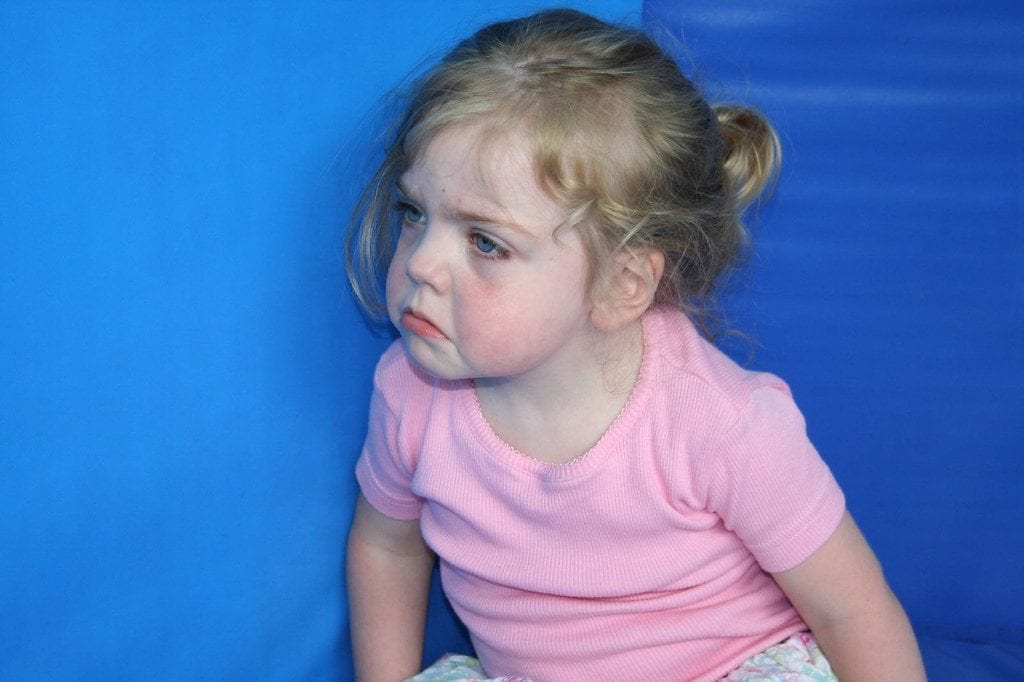
Aggression
When your child meets another kid or goes to school with one, it hurts seeing them be aggressive to another kid. Whether they are hitting them, shoving them, and yelling at them, aggression is tough to handle.
So what are some of the reasons why kids act out – and what can you do about it? Obviously, when kids start to act out and act aggressively, their aggression creates a cycle. Sometimes, it’s common. One reason kids act out is emotional overload, as displayed in tantrums. In many cases, emotional overload and being tired are the main reasons why kids act out.
Kids don’t know their own strength or the implication of hitting another person during temper tantrums. Frustration or emotional overload is one of the reasons why kids may swat at their toys and treat other children the same way. Around the kindergarten age, they stop being so aggressive. This is one of the reasons why kids need solid parenting advice and solid discipline strategies.
Talk to your kid about why aggression is bad, and why you shouldn’t hit a person because they didn’t give what they wanted.
If your children act out for no apparent reason, this may be a sign of a more severe problem or behavior disorder like ADHD. Consider consulting with a professional certified or visit the American Academy of Pediatrics website for support to learn more about why kids act out.
They Just Won’t Listen
Having a child who won’t listen to you can drive you a little bonkers, huh? You ask them to do something, and they don’t. So you raise your voice. You get mad, they get mad, it’s not a good time.
Sometimes, the kid just doesn’t hear you. They can easily get distracted if they’re entertaining themselves. Not only that, but they don’t want to be pulled away from whatever they’re doing. When you want a kid to do something, empathize.
If they’re on the tablet, tell them, “I know it’s fun, but too much tablet can keep you up, and it’s time to go to bed so you can grow.” Offer a fun way to wind down that gives them the illusion of control. If they need to take a bath, ask them if they want to be a pirate captain.
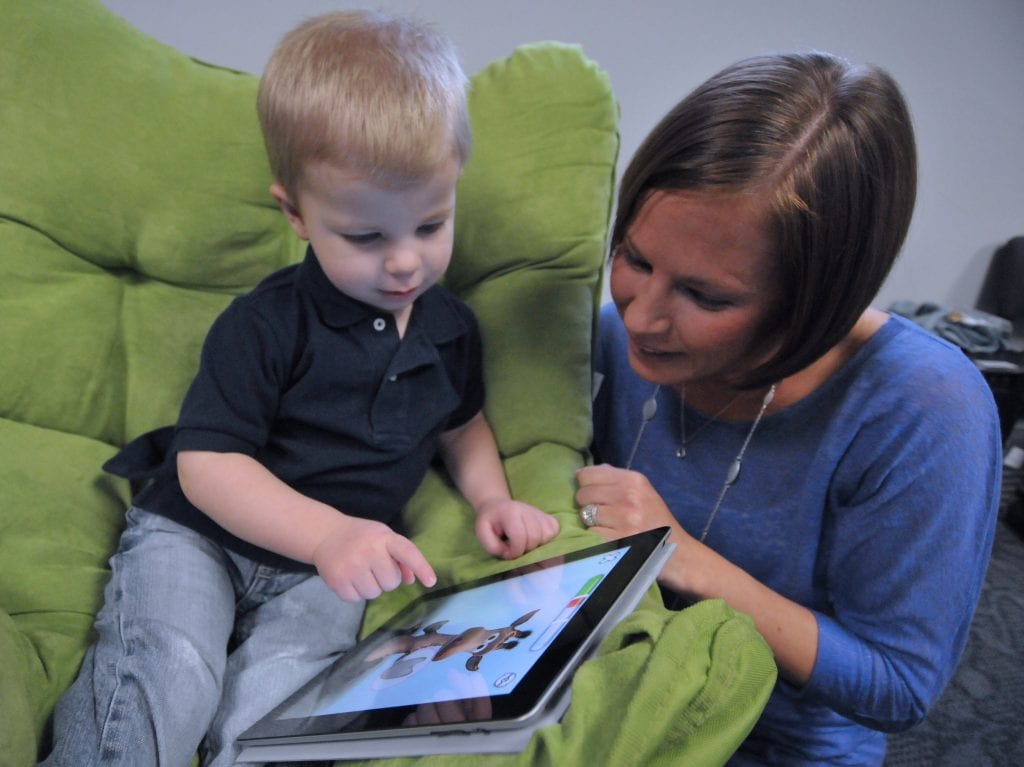
Too Much Energy
Kids are energetic, but when the kid is running down the grocery store, knocking stuff off the shelves, and causing a ruckus, it can drive you crazy.
At that age, it’s very common. Children are energetic and need to release that energy, yet we often don’t allow them to and are surprised when they do so. Always allot an hour a day for your kids to play and take out their energy. This way, your child can calm down.
What also goes with too much energy is being restless. For example, you’re eating out and waiting for the food, and your kid starts squirming too much. Children get bored quickly. Always have something to keep them occupied. Coloring books, toys, and various other methods of distraction can help the kid not be so restless when you have to sit down for church, food, or anything else.
Acting Out Or Something Else?
It’s hard to tell when it’s a kid being a kid and when it’s the sign of a disorder. Acting out is common; kids are going to be energetic, aggressive, and anxious. However, if you’ve tried everything and the problem doesn’t improve, or they seem to be too old for what they’re doing, it may be the sign of something worse.
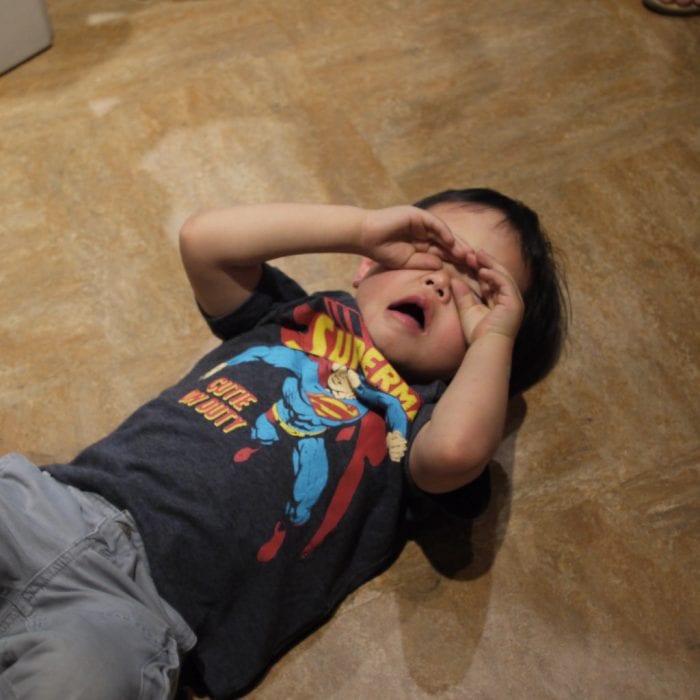
For example, if your child is too old to be having tantrums, it could be an autistic meltdown. An autistic person has meltdowns because they are emotionally overloaded and need to “restart” their system. An autism meltdown isn’t because they need attention.
Your best bet is to go to the doctor and see if your kid acting out is the sign of something more. If you’re afraid of your child being put on meds, have no fear; there are many ways to treat a problem without having to resort to medicine. Therapy is another good option, for instance.
Acting out is common, and you can help your kid by not acting out in response.
Child Acting Out All Of A Sudden
- What should you do when your child is acting out at school?
If your child begins acting out at school, schedule a conference with your child’s teacher to learn more about when the behavior started and what circumstances were involved. Talk with your child to determine if something specific has caused them to act out. Consult a professional who can help you develop a behavior treatment plan if the behavior continues.
- How do I deal with my toddler acting out?
The best way to deal with a toddler acting out is by changing their focus. Often, toddlers acting out are mirroring a recently learned behavior and can be easily refocused by introducing a more desirable behavior (and not making a big deal about the offending behavior.)
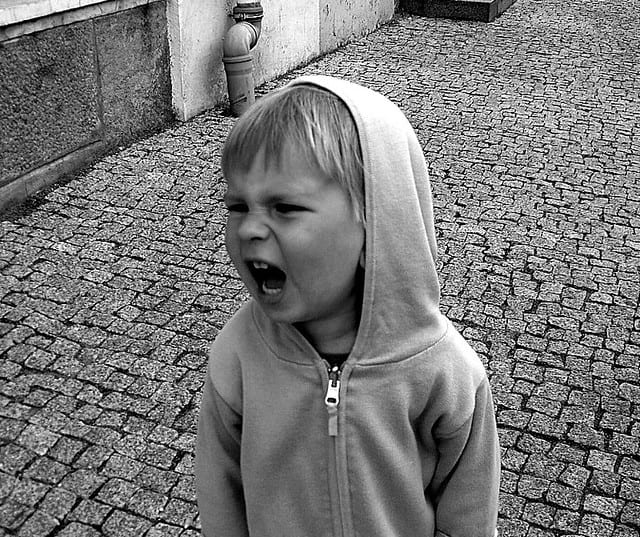
- What is the meaning of acting out?
Acting out happens when a child is engaging in behaviors that are socially offensive, prohibited, or inappropriate that require correction by a parent, teacher, or caregiver. A physical example of acting out is hitting or kicking. A verbal example of acting out is name-calling. Children experiencing depression and anxiety are more prone to acting out.
- What causes bad behavior in toddlers?
Toddlers often exhibit “bad behavior” when they are uncomfortable, tired, mimicking behaviors of older children, or seeking attention.
- Why is my child acting out?
If your child has recently begun acting out, consider what has changed in their environment recently. The introduction of a new person, routine, or even a change of residence can cause a child of any age to begin acting out.
- What is another word for acting out?
There are many names for acting out, including acting up, cutting up, bad behavior, and being bad, among others. All of these culturally based terms are referring to undesirable or unacceptable behavior.
- Why is my child aggressive?
If your child is suddenly aggressive, sit down with them and ask them what is going on. Pay attention to any changes in the environment, routine, or new people that have been introduced into your child’s life lately for more clues to learn the source of aggression.
- What should you do when your child is acting out at school?
When your child starts acting out in school, it’s not a burden you should pass on to the teachers and staff, and the teachers should not expect the same. When the child’s behavior is not ideal, it’s essential to work together to figure out why. The teacher may have to give special care to the child’s behavior problems.
If the problem is due to a mental health condition, disorder, ADHD, or anything else, it’s vital to get the treatment they need.
With that said, don’t try to defend your child and instead discipline them properly should they have acting out behavior.
- How do I deal with my toddler acting out?
Bad child behavior and acting out behavior is common in toddlers. Temper tantrums, always saying no, too much energy and noise, the list goes on.
Toddler behavior problems and bad behavior can be tough to manage because the toddler won’t listen to reason just yet. This is a period where your toddler should learn the consequences. If they throw their food, then no food for them. If they break their toy, they don’t get another. Learning consequences and calmly explaining them is a good way to parent.
With that said, do not take your toddler’s temper tantrums personally. Instead, keep calm and don’t lash out. Your toddler needs to learn to control their emotions. One of the best pieces of parenting advice we can give is to show your toddlers an example of excellent behavior. A lot of children act the way they do because of their parents. Monkey see, monkey do.
- Why is my child acting out?
Children act out all of a sudden for many different reasons, spouting verbal abuse and showing other types of acting out behavior that can drive any parent batty. Here are some reasons why kids act out:
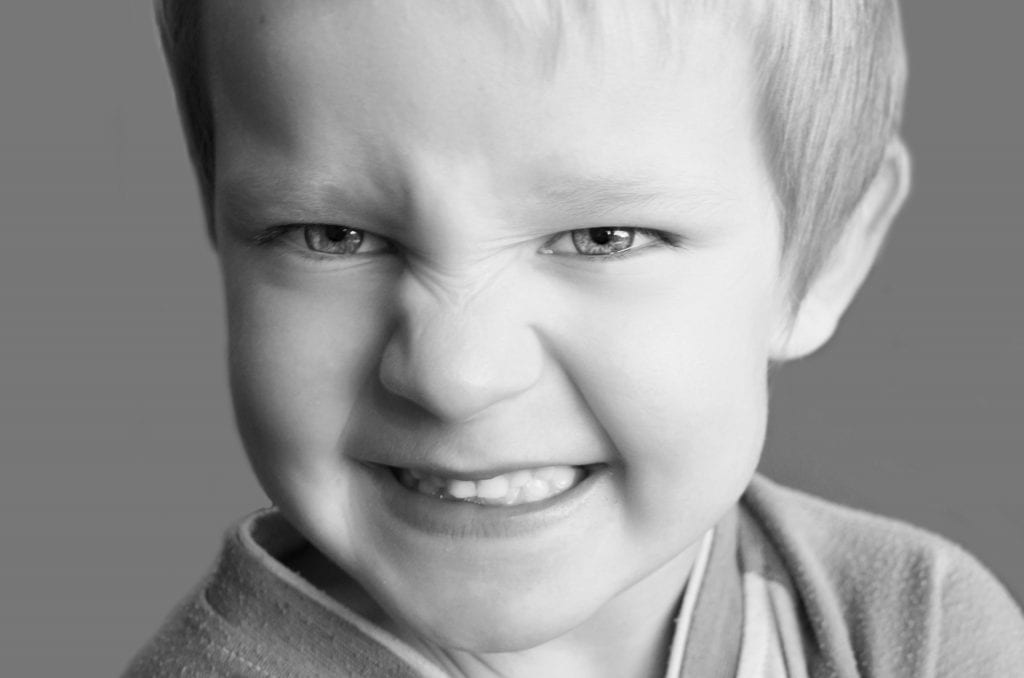
- They seek attention. Sometimes, acting out behaviors are due to something as simple as that. If you give them the attention they want, they see that as positive reinforcement and will continue to act out. We can read all the parenting tips we can, but your child will always want attention in some way.
- Power struggle. Sometimes, your kid just wants to be more independent and will try to flex their power through acting out. Power struggles are never good for anyone, and any parent should strive to nip it in the bud before it happens.
- Mental disorder. Anxiety disorders, oppositional defiant disorder, the list goes on and on.
- Why is my child aggressive?
Aggression is one of the toughest child behavior problems to deal with and is a common part of challenging behavior in children. The following are some reasons why your child may be aggressive:
- Mood disorders, such as oppositional defiant disorder (ODD).
- Trauma, like the death of a family or loved one or anything recent that could cause aggression.
- Children act aggressively often as a power move, as they think this will get them somewhere.
- Another one of the many reasons why kids act aggressively is because it’s a learned behavior. If you’re aggressive, they will be too. Aggression is one of the worst discipline strategies out there.
- Sometimes, acting out behavior may be due to another child on the way. If your pregnancy tests said they were positive, and your child’s new sibling is on the way, sometimes, they can get mad that they are going to lose attention. And nothing short of a pregnancy loss can stop aggressive jealousy. So while you’re looking at your due date calculator, you should also look at your child and see what can be done about their possible acting out behavior. You need to make sure your blended family is properly blended.
- Your child may not be eating enough good food, nutrition, or vitamins. An undernourished child may show aggression. It’s important to get the nutrition they need, according to the American Academy of Pediatrics. Go to your child’s doctor and see if they need any nutrition.
- How Do Aggressive Children Behave?
Sometimes, it’s a bit hard to define what aggression is, but we’re here to help. Here are some examples of aggression.
- Aggression may include deliberately disobeying authority figures for a power move. Rebellion can happen at any age, especially around the middle school years. Middle school is when a child becomes a teen, and this behavior continues throughout high school. However, a bit of rebellion and aggression disobeying can be different.
- Violence. A child’s behavior, when they are aggressive, can include violence. They may push, punch, or attack other kids, and even you, creating a difficult time for all. It’s crucial to your discipline your child in a way that isn’t physically aggressive back. A child’s behavior can worsen if the parent or authority figure becomes more physically aggressive.
- Yelling. Another way a child can be aggressive is through yelling. Again, an effective discipline strategy is not to yell back; this can just make the problem a whole lot worse. Instead, teach your child that yelling is never the issue and bring positive attention instead.
- How do I stop my child from being aggressive?
- We can’t stress this. When your child is being aggressive or showing off inappropriate behavior, never be aggressive back. Fighting fire with fire is never good in the aspect of parenting and tackling challenging behaviors. Instead, positive attention is what you’re looking for.
- If it’s due to a mental disorder, it’s important to find a treatment plan through a mental health professional. These conditions may include attention deficit hyperactivity disorder (ADHD), anxiety and depression, or any other mental health problem or mental health issues in children.
- Reward your child when they don’t show aggressive behavior to get what they want. Positive reinforcement is one of the best discipline strategies out there.
- Try to find the root cause. For example, your child may be acting out because of a bully at school, stress, or another problem. There are many external reasons why kids act out, and you must find the causes to help your child.
- What are some examples of aggressive behavior?
Acting out behavior includes yelling, physical violence, disobeying, or any action designed to disturb the peace.
- What causes bad behavior in toddlers?
Toddlers are in an odd stage, where they’re very much like babies, but they have some independence. Their brains don’t quite understand consequences just yet, and they still have the neediness that babies do. When they don’t get their way, the child starts to scream, cry, and experience other behavior issues. You must remember that your toddler isn’t like an older child. Their brains are still undercooked by a significant margin, and they often can’t handle their emotions and way of life. It’s important to show them good behavior and not to enable them when the child acts out.

- At what age can you reason with your child?
There is no magic age to start to reason with a child and their behavior issues. During the toddler phase, the child is learning consequences and asking, “why?” As they grow, they will start to learn more. Around seven years old or so, your child becomes much more reasonable. With that said, teaching them reason, logic, and curiosity at any age is not a fruitless endeavor. Even if it doesn’t seem to work, talking to your child about reason is always smart. Just realize that they are not adults, and sometimes, they can be unreasonable.
If you are having trouble with parenting your child, you may need some parent coaching to help you out. Online parent coaching can help your child to stay calm as you learn some good techniques to help raise your child.
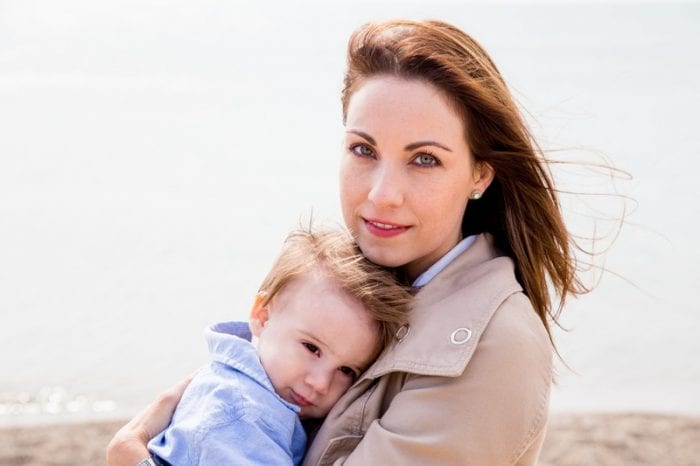
Child Acting Out All Of A Sudden Conclusion
Some children act out, and for parents, it can be a nightmare to deal with. Hopefully, with this, you learned about why they do it, and some techniques to help deal with a child being unreasonable. There are many reasons why, and learning the cause is key to understanding what’s going on.
Child Acting Out All Of A Sudden Other Resources
https://www.verywellfamily.com/acting-out-behavior-what-is-acting-out-behavior-2161817
https://www.parentalquestions.com/why-is-my-child-acting-out-all-of-a-sudden/
Last Updated on January 31, 2023 by Rejie Salazar
DISCLAIMER (IMPORTANT): This information (including all text, images, audio, or other formats on FamilyHype.com) is not intended to be a substitute for informed professional advice, diagnosis, endorsement or treatment. You should not take any action or avoid taking action without consulting a qualified professional. Always seek the advice of your physician or other qualified health provider with any questions about medical conditions. Do not disregard professional medical advice or delay seeking advice or treatment because of something you have read here a FamilyHype.com.